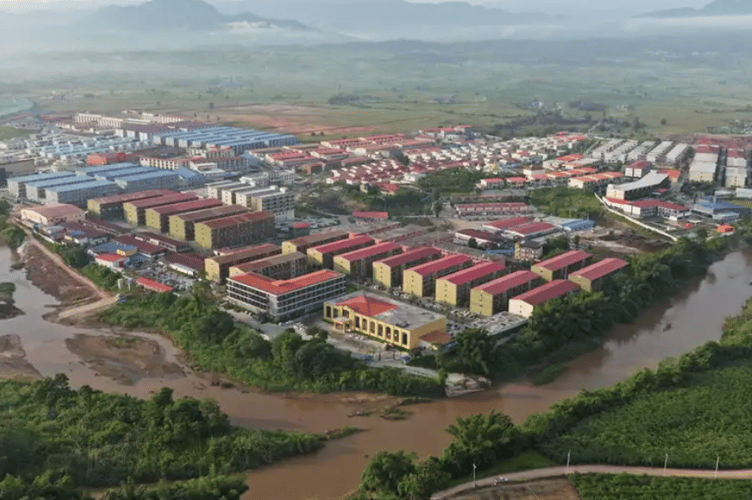The Manx government says its is committed to playing its part in disrupting the global threat of transnational crime.
It has revealed multi-agency work is under way to review historical visa applications, to identify any ‘patterns of concern’.
The move came after a UN report published this month alleged that Chinese crime syndicates have infiltrated the Isle of Man and set up online gaming platforms to launder the proceeds of transnational crime.
Crime syndicates, it claims, are targeting jurisdictions with relaxed regulations and where gaming licences can be obtained with relative ease, so that they can launder the proceeds of industrial-scale scam factories set up in South East Asia.
Island advocate Maria Bridson has also detailed how hundreds of migrants have been duped into coming to the island with the promise of jobs that turned out to be fake, leaving them trapped by gangmasters in low paid employment and sub-standard accommodation.
The Manx government has taken two days to provide a response to the allegations, which were detailed in the Isle of Man Examiner and online at Isle of Man on Tuesday.
A spokesperson said: ‘Reports of anyone being exploited and subjected to modern slavery in the Isle of Man are deeply concerning. We take them extremely seriously. These practices have a harrowing impact on the people involved and on our community.
‘We are unable to comment or provide any detail in relation to an ongoing criminal investigation.

‘It is however important to assure the Manx public that action has been under way, throughout this year, to strengthen our processes and systems against the risks of exploitation.
‘A considerable amount of work has been undertaken by the Isle of Man Government’s immigration service to modernise and improve processes, and there is now much greater rigour in the processing of immigration applications underpinned by improved data and information.
‘There is also multi-agency work under way to review historic visa applications, to identify any patterns of concern. Further work is underway over the longer term too, including active involvement in a project being undertaken by the UK Government to digitise their immigration process and systems.’
He added: ‘The island’s regulatory and law enforcement agencies take a zero-tolerance approach to modern slavery. They will continue to work in partnership, responding swiftly and robustly to prevent, identify and disrupt any criminal activity of this nature, using the full force of the law.
‘Serious and organised transnational crime is a global threat, and the Isle of Man is committed to playing its part in disrupting this activity and preventing the Island, its people and economy from being exploited.’
The report by the United Nations Office on Drugs and Crime cites the Isle of Man negatively 25 times.
It refers to one gaming company, which it refers to only as GC1 and which was in the process of building a £70m headquarters in the island before its offices were raided in April this year.
The report says that GC1’s simple online presence prior to the raid was ‘consistent with shell iGaming businesses used as fronts by criminal groups for laundering of criminal proceeds’.
The company’s co-founder is listed as chairman of a Mekong-based payment and investment firm which has been reported for investment fraud on various scam alert websites, the report notes.
It adds that the co-founder appears to have developed strong links in recent years to the leader of a transnational crime group sanctioned by the US, although the ‘precise nature of their business dealings remains unclear’.
The UN report also notes that the Financial Services Authority had ordered an affiliated virtual asset firm, registered at the same address, to suspend its operations.
This entity, which was deregistered in May, had positioned itself as the ‘world’s first blockchain-enabled law enforcement agency’ specialising in stolen asset recovery.
The operation of asset recovery scams are detailed elsewhere in the UN report.
The report also outlines how a Chinese court last year convicted six people who worked at another GC1 affiliate which operated from a base in the Philippines before being transferred to the Isle of Man.

Court documents show that the syndicate defrauded victims in mainland China out of millions of dollars through fraudulent investment schemes, with authorities identifying one of the co-founders of the affiliate as a Chinese-born Dominican national, the report states.
The UN report cites an unrelated entertainment company EC1, whose parent company was an Isle of Man online casino operator.
It states the EC1 ‘shows signs of what appears to be a front iGaming technology business utilised for large-scale money laundering,’ with the company’s website providing a ‘glimpse into its shadowy operations which focus exclusively on simple slot machine games’.
The report says ‘white labels’ - where betting operators outsource every component of their business - have thrived in jurisdictions like the Isle of Man where there are relaxed regulations and licences can be obtained with relative ease, and this makes them ‘extremely difficult to regulate and supervise’.
It notes that ‘those with operations in certain under-regulated jurisdictions are known to conduct less customer identity verification and transnational due diligence - making it easier for potential criminal proceeds to appear as legitimate profits of a successful Isle of Man gambling business’.
Anyone who has a suspicion or concern about the possibility of someone being exploited is strongly encouraged to contact the Police on 631212 or they can contact Crimestoppers anonymously on 0800 555111.
Safeguarding concerns relating to adults can be reported by calling 685969 or for children 686179.



.jpg?width=209&height=140&crop=209:145,smart&quality=75)
